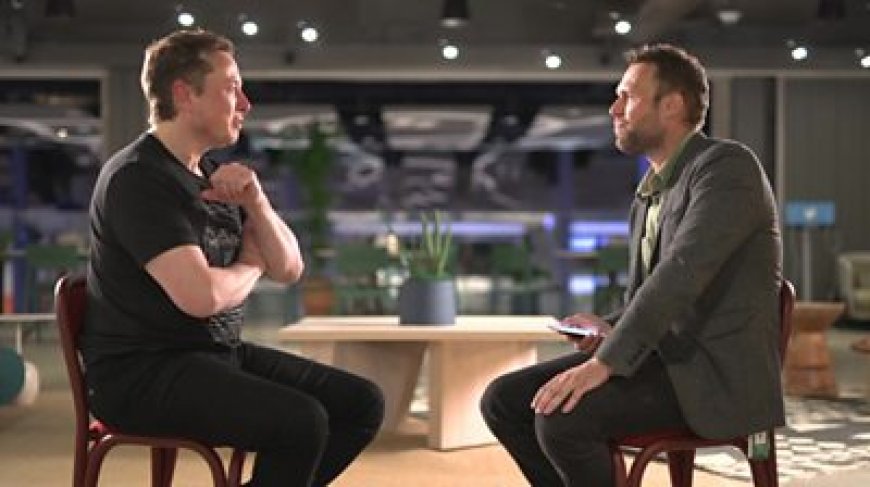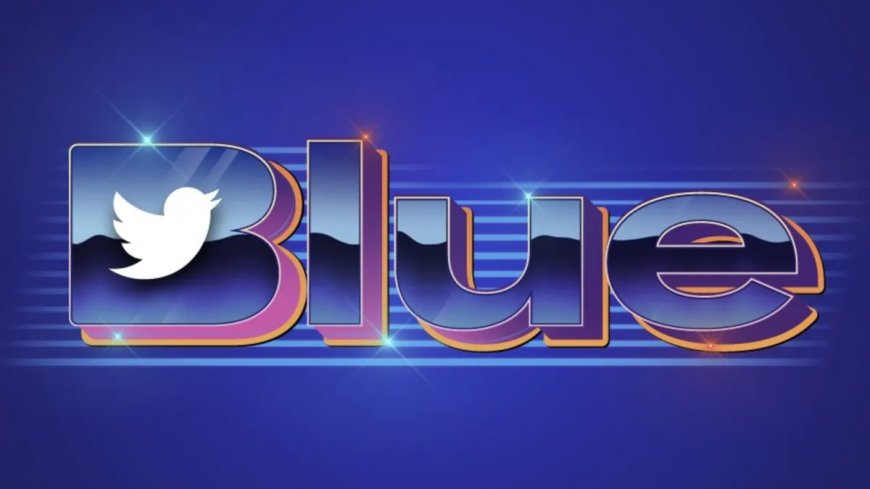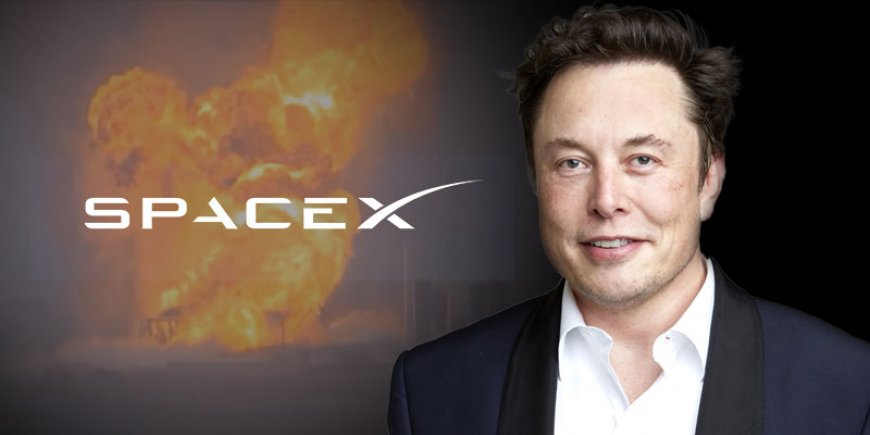Elon Musk Reflects on His First Six Months as CEO of Twitter: Lessons Learned, Controversies, and the Future of twitter
Musk shares his experience as Twitter’s CEO and his plans for the future of the platform.

Nearly six months after his controversial purchase of Twitter for $44 billion, Elon Musk has given a spontaneous interview with the BBC, discussing his tenure as CEO of the social media giant. In the interview, Musk addressed a range of topics, including the allegations of increased misinformation on the site since his takeover, rumors of a family-owned emerald mine (which he declared false), and his frequent Twitter controversies.
Musk also reflected on the lessons he learned during his first six months in charge of Twitter, during which he cut costs aggressively and laid off two-thirds of the staff. "It's been quite painful. But I think, at the end of the day, it should have been done," Musk said of the layoffs. "Were there many mistakes made along the way? Of course, you know. But all's well that ends well."
Under Musk, Twitter has undergone a significant transformation, with the CEO of Tesla and SpaceX promising to maximize "free speech." He then made dozens of experimental changes with little regard for whether they might break the site. Under Musk's leadership, Twitter has leaned into a subscription model that offers its signature blue checkmark, signaling that the identity of a user has been "verified," to anyone willing to pay $8. He has also eliminated many long-standing safeguards aimed at spotting impersonators and muting accounts that traffic in misinformation.

Musk defended many of the changes, including the layoffs, which he declared necessary to keep the company afloat. He said Twitter is down to about 1,500 staffers from more than 7,000 before the sale. "It's no fun at all. It's painful," he said, adding: "The company's either going to go bankrupt or … if we do not cut costs immediately."
Musk acknowledged that the company has experienced some serious problems under his leadership, including the shutdown of a Twitter data center in December that led to problems with the company's servers. "It was quite catastrophic," Musk said, noting that Twitter rushed to restore it.
Musk also pointed to some victories, including Twitter's decision to open source its recommendation algorithm, bringing greater transparency to how the site decides what appears in a user's feed. He also touted the site's emphasis on video and its resilience in the face of vast transformation: He said Twitter is breaking roughly even financially, that advertisers are returning to the site after fleeing in the chaotic early days after the sale, and that Twitter usage and growth are satisfactory.
"Many have predicted Twitter will cease to function," Musk said. "Their predictions have not come true. … We're literally on Twitter now."
Musk grew agitated when the interviewer asked about the rise of misinformation and hate speech on the site, noting that the journalist was unable to cite a specific example of the phenomenon. "You said you see more hateful content, but you can't even name a single one," Musk said. "You just lied!"
In a lengthy back-and-forth, Musk continued to demand "one example! You literally can't name one," he said. "You literally said you experience more hateful content and then couldn't name a single example. That's absurd."
Read more about Twitter and its future plan for Twitter blue
Musk also discussed the issue of misinformation on the platform, which has become a growing concern in recent years. Critics have accused Twitter of allowing false information and conspiracy theories to spread unchecked, particularly during major events such as the 2020 US election and the COVID-19 pandemic.
When asked about these concerns, Musk pushed back, saying that it was difficult to define what constitutes "misinformation" and that people should be allowed to express their opinions freely.
"It's really difficult to determine what's misinformation and what's not," he said. "We're trying to be as neutral as possible. We're not trying to take one side or the other. We're trying to allow people to express their opinions."
He added that Twitter had taken steps to address the issue, such as labeling tweets that contain potentially misleading information and directing users to reliable sources of information.
Despite the challenges, Musk said he was optimistic about the future of Twitter and its role in shaping public discourse.
"I think Twitter is an important platform," he said. "It's one of the few places where you can have a real-time conversation with people all around the world. It's important for democracy and free speech."
He also expressed his hope that other social media platforms would follow Twitter's lead in promoting free speech and allowing people to express their opinions without fear of censorship.
"I hope that other platforms will start to follow the same philosophy that we have," he said. "I think it's important for the future of humanity."
The interview concluded with Musk addressing the rumors about his own future and whether he planned to step down as CEO of Tesla and focus on Twitter instead.
"I'm definitely not leaving Tesla," he said. "I'm still CEO of Tesla and SpaceX. Twitter is just a side thing for me. I think it's important, but it's not my main focus."
Read more about Tesla's future plans
Musk's interview provided some insights into his vision for Twitter and his approach to running the platform. While he has faced criticism for some of his decisions, he appears committed to promoting free speech and allowing people to express their opinions without fear of censorship. As Twitter continues to evolve under his leadership, it will be interesting to see how the platform continues to shape public discourse and influence the world.
Musk’s takeover of Twitter last year sparked widespread controversy, with many critics accusing him of using the platform to promote his own interests and spread misinformation. The Washington Post reported that racist tweets quickly surged on Twitter after Musk’s takeover, and that the platform was amplifying hate speech in its “For You” page.
Musk’s most criticized move came in December when Twitter adopted a policy banning the promotion of certain outside social media platforms. In response to a fierce backlash, Musk launched a Twitter poll asking whether he should step down as CEO. A majority of those voting said yes, and Musk said he would abide by the decision.
On Tuesday night, Musk said he had made good on that pledge.
“I did stand down,” he said. “I keep telling you, I’m not the CEO of Twitter. My dog is the CEO of Twitter.”
The new CEO of Twitter is amazing pic.twitter.com/yBqWFUDIQH — Elon Musk (@elonmusk) February 15, 2023
Musk, who appeared in a jovial mood during the interview, repeatedly made jokes, including about his dog’s promotion to CEO. He also joked about his own tweeting habits, acknowledging that his late-night tweets were probably a bad idea.
“Have I shot myself in the foot with tweets multiple times? Yeah,” he said. “I need bulletproof shoes at this point.”
Musk faced renewed backlash this month after Twitter restricted engagement on tweets linking to the newsletter site Substack. The move came after Substack announced a new feature that closely resembles Twitter.
Musk denied using Twitter’s platform to make decisions benefiting himself, such as a ban placed on a Twitter account that tracked his private jet during a spate of controversies in December, as well as the accounts of several reporters who covered the decision.
And he shot back at critics who predicted Twitter’s demise.
Ultimately, Musk said, “they were wrong.”
During the interview, Musk also discussed his companies, including SpaceX’s recent successful launch of its Starship spacecraft, which he described as a “big deal.”
“We’re going to go to the moon, we’re going to have a base on the moon, we’re going to send people to Mars and make life multi-planetary,” he said.

Musk also discussed Tesla’s recent success, saying the company had achieved its goal of producing 1 million electric vehicles in a year, and that he was confident Tesla would be able to produce 20 million vehicles a year by 2030.
He also spoke about his recent appearance on Saturday Night Live, which drew criticism from some viewers and cast members. Musk defended his performance, saying he was just trying to have fun.
“I was there to make people laugh and have a good time,” he said. “I think we did that.”
Finally, Musk discussed the future of artificial intelligence, a topic he has been vocal about in the past. Musk appeared to confirm a news report that Twitter was accumulating powerful computing hardware to pursue generative artificial intelligence, the field that has developed large language models such as ChatGPT.
Musk said he believed AI would be a major driver of progress in the coming years, but also warned of the risks.
“We need to be very careful about AI,” he said. “It’s going to be the most powerful technology ever created, and we need to make sure it’s used for good.”
The complete interview between Elon Musk and BBC is available here:
